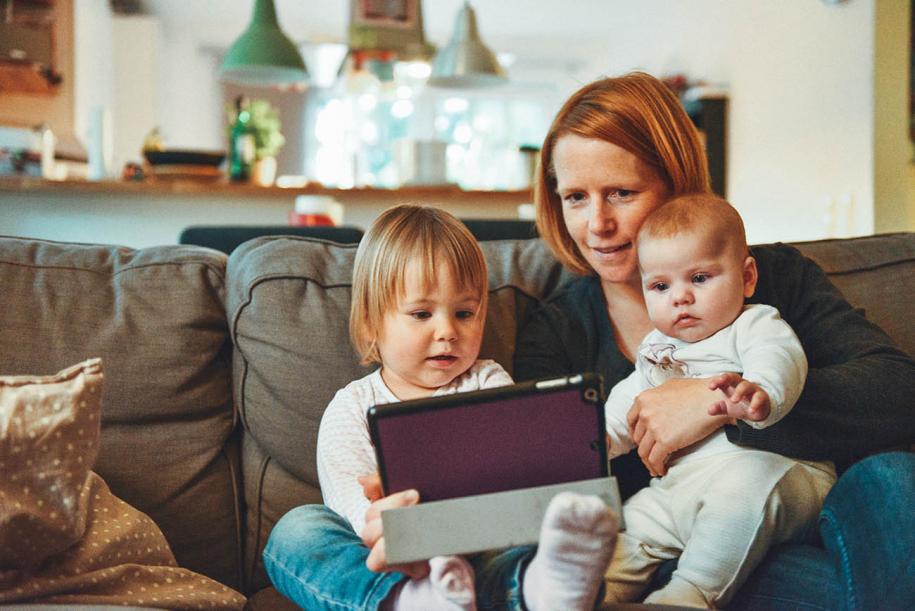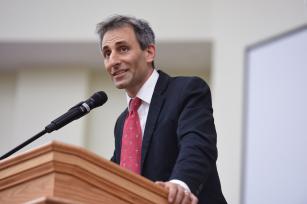
Breadcrumb
- Essential Partners
- Our Impact
- News and Notes
- Four Rules for Talking Politics with Our Kids
Four Rules for Talking Politics with Our Kids

This week’s debate was a stark reminder that this election seems more polarized than any time in my lifetime When one party is claiming one candidate is “insane” and the other chanting “lock her up,” we find ourselves in strange days indeed.
This is not entirely new. Thomas Jefferson paid someone to say John Adams had a "hideous hermaphroditical character, which has neither the force and firmness of a man, nor the gentleness and sensibility of a woman.” Adams' supporters called Vice President Jefferson “a mean-spirited, low-lived fellow, the son of a half-breed Indian squaw, sired by a Virginia mulatto father.”
We once had people dueling in the streets, lived through a civil war, and had a congressman beat a senator nearly to death on the floor of the senate.
Whether current or historical, it is not good for our democracy, for our communities, and for our children. Those little ears are listening and taking it all in. They are learning how to be citizens, how to understand politics, how to behave as advocates and speak about what they believe in from us.
I would like us to speak during this election season as though our kids are listening—because they usually are (a topic I wrote about here). I, for one, have not been doing a great job of setting an example. At some point this election will be over and one of these candidates will have to lead our country for the next four years through some trying and challenging times. We will have to turn to our president for guidance, for comfort, for leadership. Our children will listen to the President and learn from that person about the world and what leadership looks like in action. And we will have to live together for the next four years—our kids will have to go to school with kids whose parents supported the other candidate. They will have to see each other as fellow citizens—not crazies or crooks, or worse, enemies.
How we talk about this election is important and I would like to propose four guidelines for our discourse.
1. Leave the name calling to the spin doctors.
Is Donald Trump really insane? Is Hillary Clinton really a criminal? No. Neither is true and calling them those names, though fun and rallying for a moment, will not serve to strengthen our democracy, enlighten our children, or teach them about what is important. When our political conversations sound more like school recess, we aren’t doing our best. There is plenty to critique in the realm of ideas and policies without making personal attacks. One of these people will be giving the next state of the union and speaking in the wake of the next school shooting. Let’s not have our kids believing the person is “insane” or “a criminal.”
2. Speak of what we are for, not just what we are against.
What is it about what Clinton or Trump, Stein or Johnson believe that we agree or disagree with? Why limit immigration, build a wall, or provide free college for everybody? What makes sense about how we approach trading with other countries or the amount of our minimum wage? This is a moment to actually teach our children about sifting through difficult issues that affect their lives. If our children are going to go to school with the idea that they are supporting one candidate over the other, they should have some idea of what they are supporting and a clear way of saying what they want to have happen these next four years.
3. Critique the candidate and not their followers.
“Who in their right mind could vote for (fill in the blank)________?” I’ve said it. You’ve said it. The problem is that if everyone voting for Trump is a bigot, then is Uncle Tommy a bigot? Well, everybody except Uncle Tommy. If everybody voting for Hillary Clinton is corrupt, then what about Aunt Ginny? You get the point. People have a lot of reasons for voting for the candidates they choose. Let’s teach that people have complex sets of values and concerns that breach any simple Red/Blue divide and defy easy answers.
4. The election should be a celebration of our values as a democracy.
Our loyalty is to our system, our people, our creeds, each other—not a candidate for office. We pledge allegiance to our country, to our flag, to our faith, to our neighbors in hard times. This election, no matter the winner, will not change the essential nature of our country or the need we will have of one another to do any meaningful work over the next four years. Whether we have a President Trump or President Clinton will not change the need to volunteer in our schools, to work toward racial reconciliation, to commit to supporting refugees from war torn nations, to supporting our veterans and soldiers, to help families in need, to living out our professed beliefs that all people are created equal.
Do not let the presidential election diminish our children’s love of country and the values it is based on—instead let it be a reminder that we have the right to vote and responsibility to take it seriously, that we have much work to do and we can only get there if we work hard together.
Our words have some power to shape how our kids interact with the world, how they imagine themselves as citizens. We can conduct ourselves in ways that teach cynicism, name calling, and division, or we can lend them a language of respect, fair critique, causes worth believing in, and a responsibility to participate. Let’s make a choice worthy of our own best hopes for them and for all of us.
